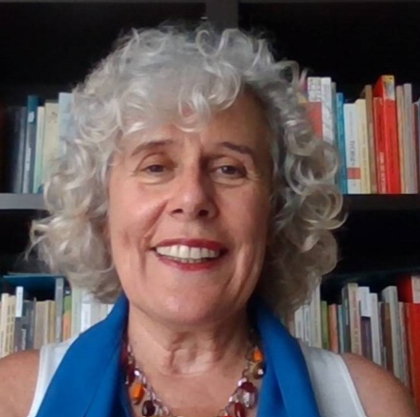
Ms. Mercedes Mayol Lassalle, the World President, World Organization for Early Childhood Education (OMEP).
Ms. Mayol Lassalle is the World President of OMEP since 2020 and elected member of the Coordination Group of the Collective Consultation of NGOs on EDUCATION 2030 -CCNGO/ED 2030, to 2024. Graduated in Educational Sciences, University of Buenos Aires. Currently, she is Professor on Public Policies for Early Childhood in the master’s in early childhood education at the University of Buenos Aires. She has been Professor of the Regional Training Program in Educational Policies, of IIEP-UNESCO for Latin America; Professor in Teacher Training on Early Childhood Education, in the National University of Lomas de Zamora and Santiago del Intermember of the Regional History Team of the National University of La Pampa and the Research Program, Higher Normal School N° 9, Buenos Aires.
The Tashkent Declaration and Commitments to Action 2022, propose to transform early childhood care and education (ECCE) by providing a set of guiding principles and strategies around four areas: quality, equitable and inclusive services for all; ECCE staff, innovation, and governance and financing policies. It has become necessary to define the meanings and orientation of the efforts and political and pedagogical decisions for placing young children at the center of the transformation agenda.
The United Nations Early Childhood Decade is a beacon in promoting and protecting the rights of children from birth, laying the foundation for equitable and sustainable development around the world. In this horizon, the transformation of Early Childhood Care and Education (ECCE) stands as a fundamental pillar, vindicating the principles of inclusion, equity, universality, and quality. Equity means ensuring that all children, regardless of their socioeconomic or geographic background, have access to quality services from the moment of birth. Inclusion, on the other hand, advocates the extension of these services to all corners of the planet, closing gaps and dissolving barriers that perpetuate inequalities. Quality must be assured at this crucial stage of life, where every interaction, every stimulus, every learning environment shapes children’s future.
It is in this context that ECCE becomes a catalyst of opportunities, a space where childhood citizenship is developed, knowledge, skills and creativity are promoted, and human and humanizing bonds are built and strengthened.
Therefore, the transformation of ECCE is multidimensional and complex, not only involving the provision of more services and infrastructure or expanding coverage but also cultivating a culture that recognizes the vital importance of the early years and our societies are committed to the comprehensive and holistic development and well-being of each child as a citizen.